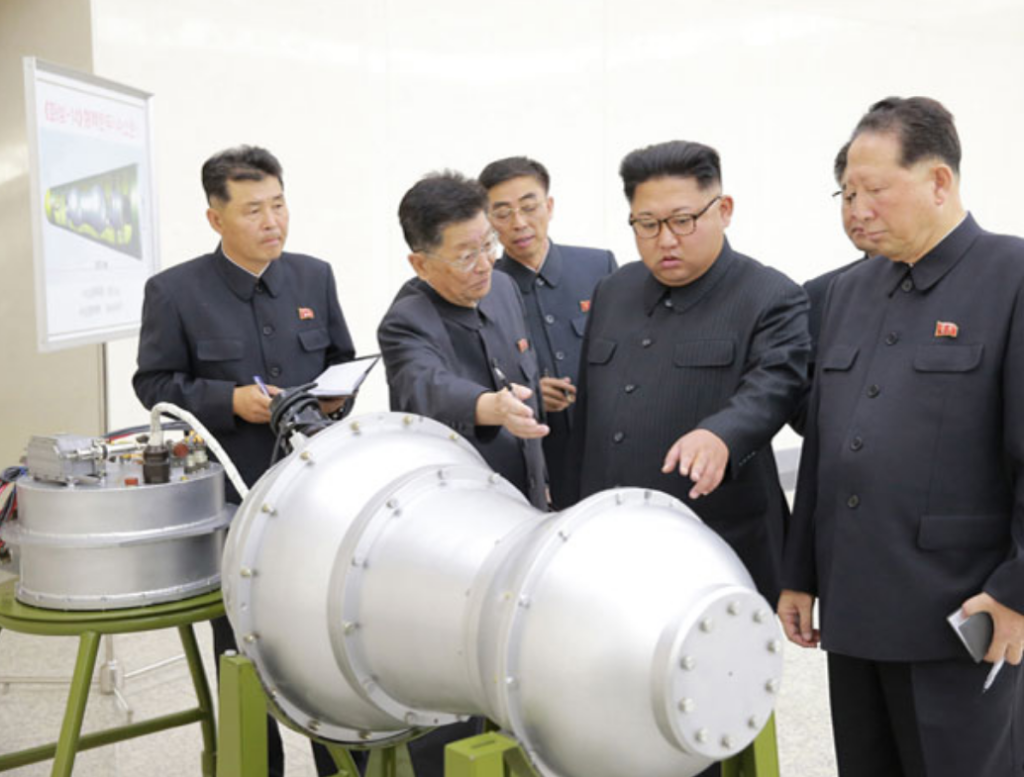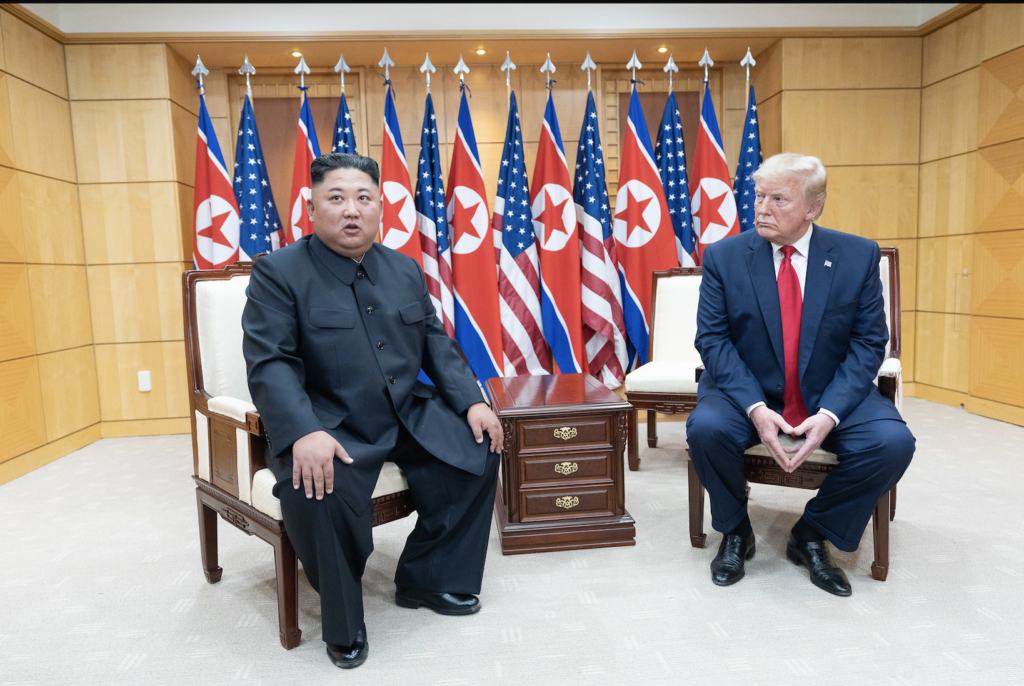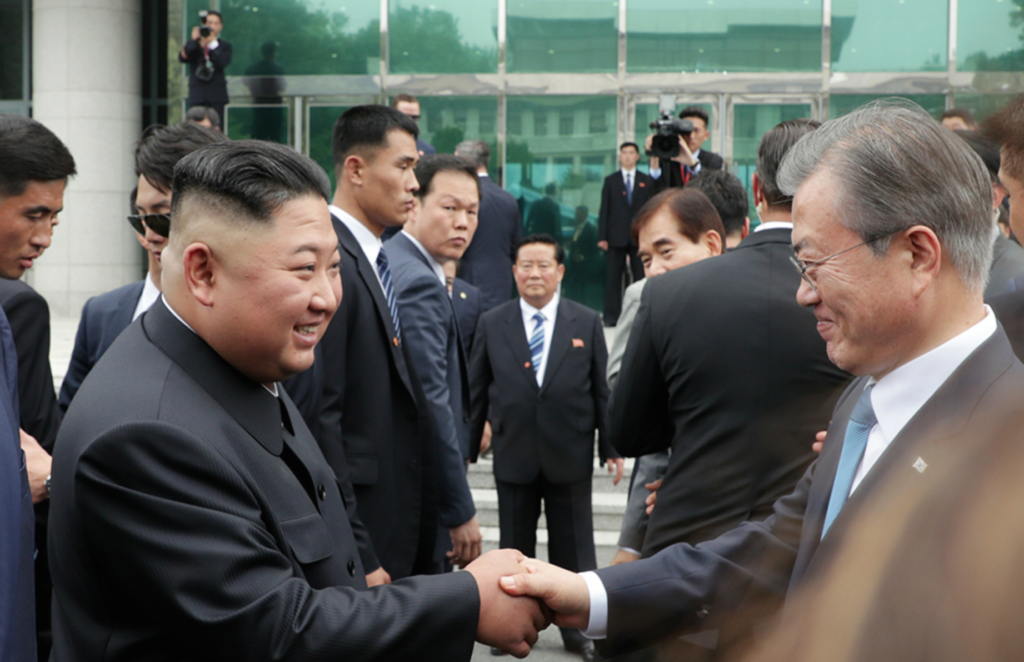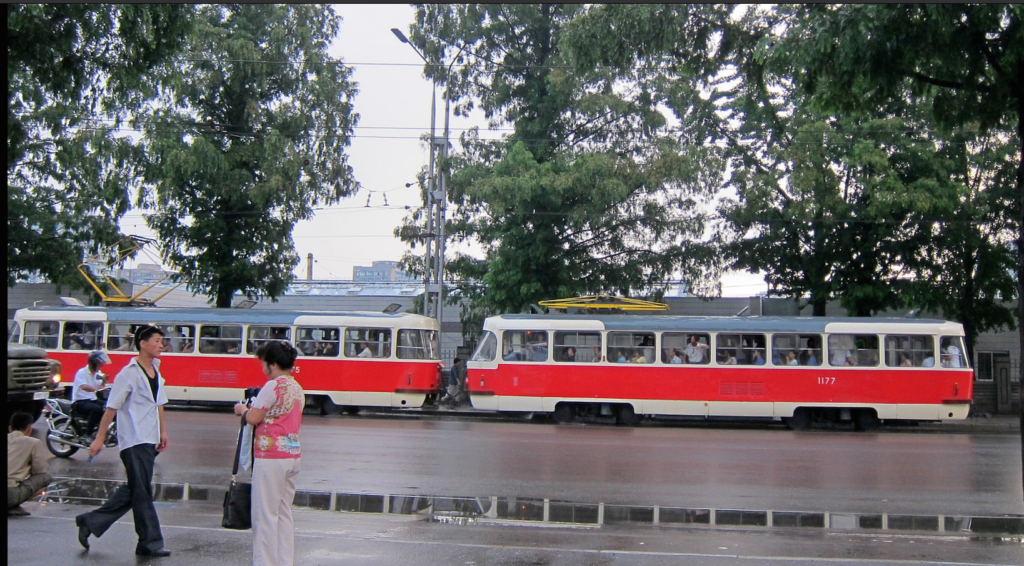A global threat requires, in principle at least, a global response. But although North Korea has long been cast as a grave threat to regional as well as international security, the European Union and the United States have demonstrated significant differences in their approach to this particular situation.
The European Union (EU) has a policy of critical engagement towards the Democratic People’s Republic of Korea (DPRK).
Its goals are to support a lasting diminution of tensions on the Korean peninsula and in the region, to uphold the international non-proliferation regime and to improve the situation of human rights in the DPRK.
“Despite having no military presence or alliances, and very modest economic links with North Korea, the EU plays a large role in the Korean Peninsula” says Ramon Pacheco Pardo who is KF-VUB Korea Chair at the Institute for European Studies & Senior Lecturer at King’s College London.
In an article on the Euractiv Think Thank web site, he also added: “In order to deal with the North Korean threat, the EU can certainly continue to use sanctions and forceful interdiction of Pyongyang’s weapons and nuclear technology shipments. They signal condemnation of North Korea’s behaviour and, more importantly, seem to have had a real effect in reducing its proliferation activities”.

According to Mario Esteban from the Royal Instituto Elcano in Madrid: “The EU still describes its official position towards North Korea as one of ‘critical engagement”.
Mario Esteban further describes in his working paper that the volume of coercive measures within its strategy has increased substantially and its ties to the country have been significantly reduced.
This suggests that its current approach could be more accurately defined as one of ‘active pressure’.
The EU had already approved autonomous sanctions that were more severe than those of the Security Council with Resolution 1718 (2006), which included an arms embargo.

However, it was with Resolution 2087 (2013) that the EU began to systematically adopt a tougher position towards North Korea than that of the Security Council and significantly expand its autonomous sanctions on nuclear programme-related persons and entities, dual-use goods and technology, trade, financial services, investment and transport.
In addition to this, Resolution 69/188 (December 2014), which demanded that the Security Council contemplate the possibility of referring these violations to the International Criminal Court, intensified the level of international pressure against North Korea’s human rights situation.
The EU had played a fundamental role in this, as it had attracted attention to the issue in 2005 by co-sponsoring the Resolution on the Situation of Human Rights in the DPRK, which had since been annually approved by the UN General Assembly.

These autonomous sanctions have gone hand-in-hand with a significant political disengagement between the EU and North Korea. Disengagement has not been reverted by the North Korean regime’s intensive diplomatic activity, which is best exemplified by the two diplomatic processes it has opened with the US and South Korea.
Its persistence is evidenced by the suspension of all bilateral political dialogue between Brussels and Pyongyang. No dialogue has been held since June 2015, whereas previously talks had been held every year since 1998.
Furthermore, member states that have a North Korean embassy on their territory have been demanding that Pyongyang reduce the size of its delegations throughout 2017. Member states with an embassy in North Korea have done likewise.
The most extreme case was Spain’s expulsion of the North Korean ambassador in Madrid in September 2017. Since then, it has only allowed North Korea to have a single diplomat in its embassy. It should also be noted that Portugal fully suspended its diplomatic relations with North Korea in July 2017, a decision it will not revert unless the regime takes effective and independently verified measures towards denuclearization.

The Korean nuclear threat is taken very seriously in the European capitals. Recently, in the UK Government’s Response to the House of Commons Defence Committee’s Fourth Report (2017-2019) concerning North Korea, it was stated :
“It is a reasonable assumption that North Korea can already reach the UK with ballistic missiles which could potentially carry nuclear warheads. In any case, it is almost certain to be able to do so within the next six to 18 months if it continues its programme at the current rate of development. North Korea has made significant advances in its nuclear weapons development programme over the last two years. It is widely believed that North Korea can now launch short-range ballistic missiles capable of hitting targets in the region. North Korea has, however, yet to demonstrate that it has successfully tested the remaining elements required for full Inter-Continental Ballistic Missile (ICBM) capability, such as re-entry vehicle technology or the miniaturisation and integration of nuclear warheads with its ICBMs.”
What history reveals about North Korea’s strategy towards the United States
The United States successfully implemented a decade-long strategy against the Soviet Union and its allies that ultimately contributed to the collapse of the Soviet regime and change in governments in numerous countries across Eastern Europe.
Central to the US strategy was forcing the Soviet Union to expend scarce resources on military and security programmes to the detriment of its economy and quality of life. Washington continuously announced policies designed to instil paranoia within the Soviet Union and the Soviet regime to respond with increased military spending.
Soviet leaders ultimately could not fund their perceived defensive needs without destabilizing their political system and alienating their allies.
The United States is following this same proven Cold War playbook in its approach to the Democratic People’s Republic of Korea.
Washington purposefully goads and sometimes manipulates Kim Jong-un, forcing him to unwisely spend his limited resources on missile launches, weapons testing, and costly military research and development.
Kim Jong Un’s current negotiation tactics make him susceptible to this de facto strategy, and raises the prospect of US strategy threatening the stability of the Democratic People’s Republic of Korea’s political system and the quality of life of his supporters.
Analysis of North Korea’s economic indicators shows Pyongyang will be hard pressed to maintain a viable economy while also pursuing a strategic nuclear weapons programme that alienates global powers such as the US and the West and even China.

White House Photo by Shealah Craighead
The United States outlasted a Soviet Union that was larger and better resourced than present-day Democratic People’s Republic of Korea, which raises questions as to whether it can sustain its current strategy. Numerous media reports already say their economy is declining rapidly and facing challenges not seen since the severe famines of the 1990’s, which killed millions.
According to regional experts, Kim Jong Un needs to take steps towards denuclearization and reverse his military policies before it is too late.
Throughout the Cold War, the Unites States constantly monitored Soviet military testing and exercises, which led to the development of effective US counter-measures.

It seems obvious that The United States manipulates Kim Jong Un into conducting costly missile launches because Washington is not overly threatened by Kim Jong Un’s military posturing.
Washington is similarly unconcerned with the Democratic People’s Republic of Korea’s military exercises because of the US ability to detect and counter DPRK military threats.
Kim Jong Un hurts his country’s economy, wastes resources, and risks potential instability when he reacts to perceived threats with military tests and exercises.
Experts say that economic difficulties within North Korea are likely to cause fracturing of support among the elites who will look to protect their involvement in various economic sectors and industries, as elites view those investments as long-term lifelines.
The mining and textiles industries are just two examples of those that have been suffering due to international sanctions.
Although the Democratic People’s Republic of Korea in 2018 made progress in rehabilitating its image during the Olympics and other engagement with South Korea, experts say that Pyongyang’s continued lack of diplomatic progress have undone that progress and left North Korea’s image tainted.

According to UN enforcement monitors, even ostensible supporters of the Democratic People’s Republic of Korea like China and Russia have taken steps against the DPRK personnel and projects in those countries.
Opportunity for Kim Jong-Un
Most analysts admit that Kim Jong-Un has done some positive things for his country – that include re-opening of engagements with the US as well as enacting certain domestic reforms that improved the service sector and tourism – and is positioned to expand on those by refining his negotiation strategy.
In addition, according to one foreign affairs expert, “North Korea should look to take advantage of the fact that it is negotiating with an image-conscious White House administration that is seeking a geopolitical goal.”
The analyst added that “It would be a clever move by Kim to give the Western leaders small ‘wins’ that would restore energy to the engagement process and improve Pyongyang’s hand.”

Bridging the gap
European governments have also a major role to play in this diplomatic and strategic round even though, generally speaking, Europe does not see a military solution to the North Korean crisis.
The apparent disinterest on the part of the US to strive more for a diplomatic solution may have created an impression in Europe that the United States is in the process of talking itself into war. However, this may be inaccurate. But if that is the case, then this inaccuracy is solely due the US administration’s inability to communicate its strategy.
This results in the EU becoming wary about the ultimate goals of US pressure — is it really designed to bring Pyongyang to the negotiating table, or to drive it into creating a casus belli ? It seems logical then, that in the absence of better co-ordination, European propositions to take a role in negotiations might become more insistent.
It is conceivable that the EU might increasingly demonstrate its dissatisfaction with US leadership on this issue, although not to the extent of wanting to take up the leadership itself. And if that is the case, the EU might take the unusual step of indicating in advance – most likely privately – that it would not support preventive military action.
However, none of this needs to materialize. If the United States shows more transparency with the EU about its diplomatic strategy towards Pyongyang, it will certainly help to prevent these transatlantic differences of opinion widening and hardening.
In fact, what seems really necessary is a firm foundation for a renewed common front towards North Korea and the global response it demands.
Trajan Dereville


